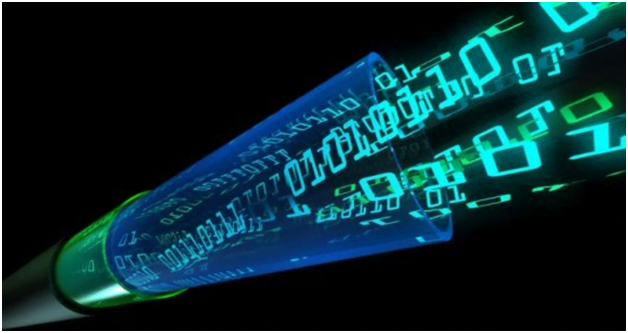The IP that stands for Internet Protocol is the most accepts protocol that makes the communication over the network possible. The dynamic IP address is assigned automatically to each and every connection, also known as a node, on a particular network to devices like smartphones, desktops, PCs, wireless tablets and other devices. The DHCP server istheoneresponsiblewho is given the task to automatically assign IP addresses to all the devices. The IP address assigned by the DHCP server iscalled dynamic because the address keeps on changing over the network. All the devices have a unique address over the web and that is what distinguishes them from each other.
The dynamic IP address is temporary IP address that you can find using ip finder for router. They are borrowed from a set of IP address collection. They are then shared among all the computers that are present in a particular network. This means that the dynamic IP address changes every time when your device logs into a particular network. These IP addresses are thus hard to trace and are usually used by big companies.
Usage of Dynamic IP Address
This addressis generally a public IP address that iscommonlyassigned to both domestic as well as business routers. The IP address which is assigned to the routers of business and homes are the dynamic IP addresses. Companies that are on a large scale do not have a dynamic IP address because they need the public to find them on the internet. Instead, static IP address is assigned to them so that they have their own personal IP address. In local areanetworks, like the business place or your home, a dynamic IP address is used in most devices on this network, which means that they are assigned dynamic IP addresses. You can use IP finder for router to know your IP address.Not enabling DHCP means that every device on the network of your home needs to manually setup the network information. There are certain Internet Service Providers which assign dynamic IP addresses which are sticky in nature. These dynamic addresses do not change as frequently as a typical dynamic address.
Advantages of Dynamic IP Addresses
There are certain advantages of Dynamic IP Address. The dynamically assigning IP addresses is much more flexible than the static IP addresses. They are even easier to setup as well as administer. For instance, if you have a laptop that connects to a particular network, you are assigned a specific IP address and when the deviceis disconnected, the same IP address is assigned to some other device. The reusability of the address is a major advantage here.
Another advantage of this IP address is that there are limited IP addresses available to the ISP to connect to the internet. In that case, only limited devices can be connected in total. Each one of them would have their own IP address that could limit access for other new devices. The IP address is used up even if the devices do not use it. If you want to connect to the network then you won’t be having an IP address to connect to the internet. In the case of dynamic address, the devices that are currently not in use can be used to free up the address for other devices to use it.
Moreover, dynamic IP addresses are easier to implement as compared to a static IP address. There is no need to manually setup the new devices that will connect to the new network,unlike the static address. The only requirement is that you enable the DHCP on your router as they are responsible to assign the IP address. Most of the devices that are connected to the network are configured by default so that they connect to the available pool of addresses, which are available on the network. Thus, everything is done automatically.
Disadvantages of Dynamic IP address
One disadvantage of this address is its accessibility.Since the network is accessed only on the home network, thus it is a disadvantage that you cannot access it from any other place like your office or your workplace. Dynamic addresses are assigned to share the network on a particular place like your home or your business place. So, if you are looking to access it from any outer place, you wouldn’t be able to do so. This is an advantage as you are not compromising on your privacy but it is also a disadvantage as you cannot access it yourself. Most remote access programs need to know your router’s IP address so that they can access your computer which is inside that network. Since your IP address is dynamic, it changes all the time period which could land you in trouble.
Another disadvantage is that if any of the DHCP servers fails, then this might lead to a wide problem. In case of any failure of the server, all the connected devices will try to obtain a new IP address and the devices which are connected will try to renew its address. These all will cause your computer to lose its IP address. Moreover, connecting a Virtual Private Network (VPN) might cause the network server to disconnect. It is very unreliable and this could be a very serious problem. There is also a problem of security as the information which is shared on the server can be easily intercepted and looked at. The network personnel has no control over the DHCP server. Thus, violating of the network security and privacy of the user.
Conclusion
Both types of IP address has its own advantage and disadvantages. You should choose according to your priority. If you care more about your privacy and if you want to use a particular network for your home, you should then opt for a dynamic IP address. On the other side of the lane, if you want an IP address for a particular network to remain fixed then you should use the static IP address.

















